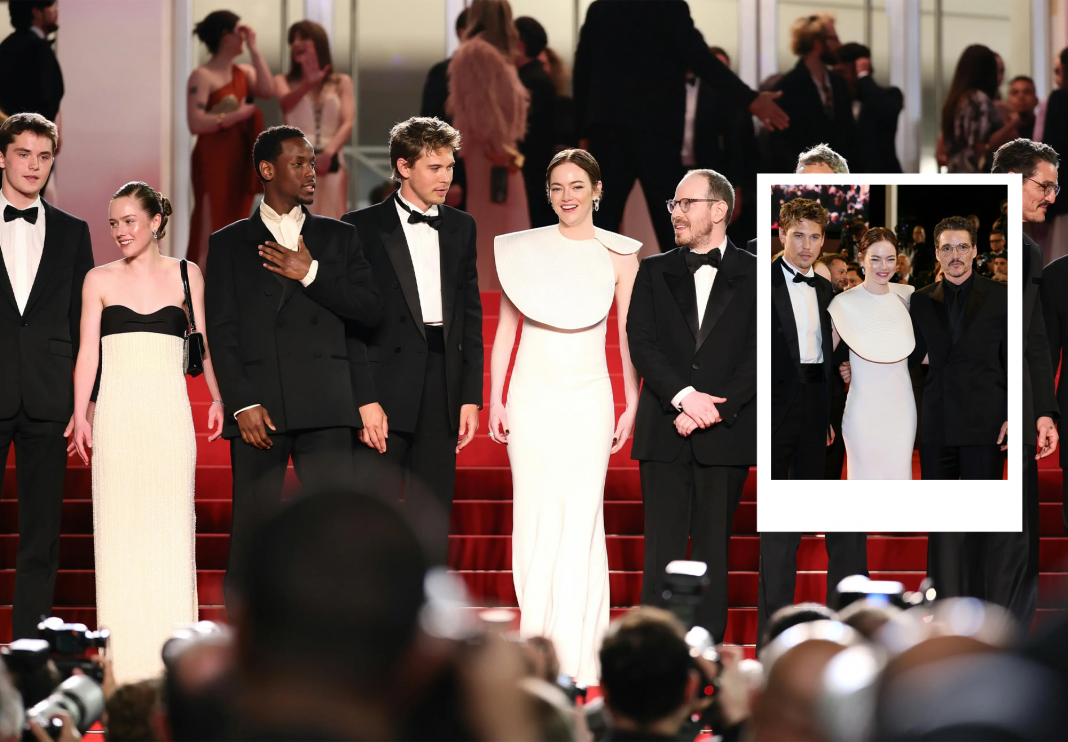Ari Aster’s latest film, Eddington, premiered at the 2025 Cannes Film Festival with a thunderclap of controversy. Starring Pedro Pascal and Joaquin Phoenix, the politically charged drama explores America’s darkest pandemic-era fractures—and left audiences shaken, divided, and, in some cases, walking out. Here’s why Eddington is the film everyone’s debating.
A political powder keg in pandemic times
Set in the fictional town of Eddington, New Mexico, in the early days of the COVID-19 pandemic, Eddington follows a tense political rivalry between two local leaders: Joe Cross (Joaquin Phoenix), the town’s sheriff with staunch anti-mask, anti-vaccine views, and Ted Garcia (Pedro Pascal), the progressive mayor advocating for public health mandates. Their battle for control escalates during a mayoral election, reflecting a national divide through the lens of a small-town showdown.

The film doesn’t shy away from controversy—it charges into it. From its stark portrayal of pandemic-era conspiracy theories to heated debates over mask policies and vaccine skepticism, Eddington mirrors the exact cultural tensions that fractured communities across America. But it’s Aster’s approach to these tensions that has drawn the most ire. According to Variety, the film appears to invite empathy for Phoenix’s conservative character, a move that some viewers found troubling in today’s polarized climate.
As the sheriff resists pandemic protocols and publicly questions science, Eddington challenges its audience to understand—not necessarily endorse—his worldview. It’s a risk that has paid off in buzz, but not without backlash.
Walking out and speaking up
During its Cannes debut, reports surfaced of at least 20 people walking out of the screening—an unusual but telling reaction at one of the film world’s most prestigious venues. Critics and viewers alike questioned Aster’s framing of characters and political movements, particularly his depiction of the town’s anti-racist youth protests that echo the real-world Black Lives Matter demonstrations.
Owen Gleiberman of Variety described Aster’s portrayal of the youth activists as “a pack of deluded narcissists,” suggesting the film intentionally satirizes their idealism and moral fervor. “Aster isn’t merely mocking them,” Gleiberman wrote. “His real point is that moralistic self-righteousness has become a kind of addiction in America.”
That interpretation struck a nerve with festival-goers. For some, the film’s tone felt dismissive of crucial social justice movements. For others, Aster’s ambiguity—his refusal to clearly side with either political camp—was a bold and necessary reflection of America’s current ideological chaos.
Ambiguity as a mirror

Ari Aster, known for Hereditary and Midsommar, insists that Eddington is not a film with answers—it’s a film with questions. Speaking at a Cannes press conference, the director described the work as “a camera placed on the country,” wide enough to capture conflicting viewpoints without assigning moral superiority.
“What the film is about, for me,” Aster said, “is about what happens when people who are so isolated and are living in their own realities—what happens when they come into conflict with each other. When you start bumping up against each other, a new logic is created, and out of that, people start amplifying each other’s fears.” The film also touches on deeper societal shifts, from the rise of authoritarian politics to the erosion of empathy in a culture of hyper-individualism. Aster reportedly wrote the script while in a state of anxiety and disconnection—emotions that resonate with the collective trauma of 2020. Eddington is not meant to be a history lesson, but rather an emotional echo of a moment that redefined modern life.
A cast designed to provoke and perform
Bringing this volatile narrative to life is a cast stacked with A-list and indie talent. Joaquin Phoenix delivers another raw and unpredictable performance as Sheriff Cross, infusing the character with a blend of menace and melancholy. Pedro Pascal offers a steadier, more introspective presence as Mayor Garcia, whose political ideals are tested by the rising tide of paranoia and misinformation.
Joining them are Emma Stone, Austin Butler, Luke Grimes, William Belleau, Clifton Collins Jr., Cameron Mann, Deirdre O’Connell, Matt Gomez Hidaka, Kaleb Naquin, and Amélie Hoeferle. Each brings a layer of realism to a town suffocating under the weight of isolation and ideological conflict. Stone’s role, though smaller, reportedly adds a sharp emotional edge to the narrative, while Butler’s character serves as a kind of wildcard within the town’s volatile dynamic. The ensemble cast allows Aster to portray a community in collapse, not just politically but spiritually, asking viewers to examine how our collective fears shape the stories we tell ourselves.
Art imitating an uncomfortable reality
For many at Cannes, Eddington was more than just a film—it was a confrontation. Its setting may be fictional, but its themes are as real as the headlines of the past five years. Whether it succeeds or fails in its moral ambiguity is still being hotly debated.
IndieWire’s Ryan Lattanzio noted that some viewers saw the film as “a tough sell” due to its emotional intensity and heavy reliance on recent trauma. “Eddington could be a tough sell for audiences unwilling to be submersed again in summer 2020 and all the chaos and anxieties it erupted,” he wrote. Yet others defended it as a “necessary social satire,” one that “encapsulates it all into one movie as never before.”
What’s clear is that Aster has crafted a cinematic Rorschach test—one that reflects back the viewer’s own biases, fears, and unresolved questions. The emotional volatility, political tension, and cultural commentary all serve one purpose: to spark conversation.
What’s next for Eddington
Set for theatrical release on July 18, Eddington is poised to become one of the year’s most talked-about—and possibly most polarizing—films. Whether it wins over mainstream audiences or ignites further debate remains to be seen. But in true Aster fashion, the film is bound to leave an imprint, challenging viewers to sit in their discomfort and consider how far we’ve come—or haven’t. As the credits roll and the arguments unfold, one thing is certain: Eddington isn’t just about the past—it’s about the present moment still unraveling before us.



